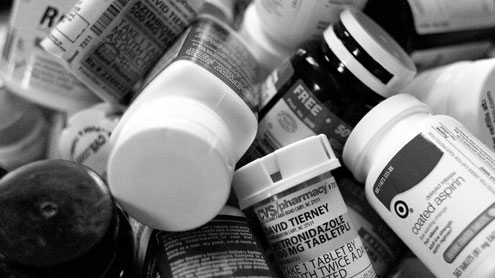It’s the night before a huge exam and you know nothing. As panic begins to sink in at the idea of staying up all night studying, a small glimmer of hope elicits itself at the realization that there is a way to remain awake into the wee hours of the night: a stimulant by the name of Adderall.
College students commonly use Adderall and other Attention Deficit Hyperactivity Disorder stimulant medications such as Vyvanse or Concerta to succeed academically or even for weight loss.
The National Survey on Drug Use and Health report from 2009 shows college students between the ages of 18 and 22 are two-times more likely to take Adderall without a prescription than those of the same age not attending college.
Students who use the medication non-medically are also more likely to dabble in substance abuse, such as binge drinking or marijuana and cocaine use. What few may not know is that as an amphetamine, the stimulant medication has a high potential for addiction or abuse and increases the risk for heart attack or stroke.
As a college student, I have had my fair share of encounters with ADHD medications, especially during midterms and finals. I understand the appeal of the medication and the desperation a desire for a good grade can generate. I also have experienced the side effects: loss of appetite, dehydration, jitteriness, loss of sleep and even once hallucinations. Although work gets done, the effects are miserable.
Brittany Hallmark, a senior studying anthropology, has also taken the medication but expresses concern about college students and their growing dependency on it.
“I think it’s become a problem because I think students are using it as a means to get by. Even though it is like a miracle drug, it isn’t the healthiest option,” Hallmark said.
Her concern has legitimacy. The number of college students taking ADHD medications for nonmedical use is uncertain, but a study titled “Illicit use of prescription stimulants among college students: Prescription status, motives, knowledge, theory of planned behavior, and tendency for self-diagnosis,” conducted by Susan Langdon and published in 2009, reports that 35 percent of undergraduate students use the medication without a prescription. The numbers are only growing as the years pass.
Adderall and other ADHD medications may seem more socially acceptable than street drugs like cocaine, but the hard truth is that they are just as addictive. An occasional nonmedical use may not hurt you, but a continuous reliance on the drug will lead to dependency and other medical issues.









